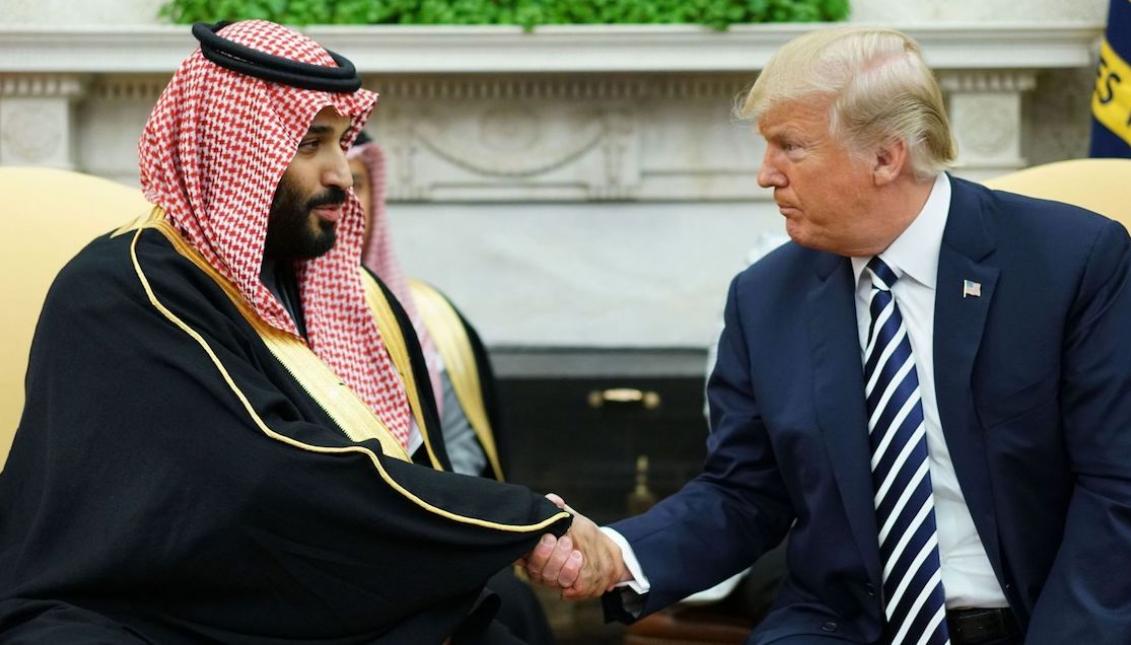The strategic relationship between Saudi Arabia and the US is fostered by shared geopolitical and economic interests rather than homogeneous morals and values. The US-Saudi alliance was cultivated by the US’s reliance on Saudi Arabia during the Cold War and it has grown over the decades through shared regional strategic goals. Since President Obama took office in 2009, the US has sold almost $300 billion worth of arms to Saudi Arabia and the National Security Agency has been closely cooperating with the Saudi Ministry of Interior since 2013. At the same time, Saudi Arabia has sought to buy influence in the US by employing dozens of American lobbying and PR firms. Through these firms the Saudi government has conducted meetings and donated money to countless candidates that help support Saudi interests in DC and in US foreign policy.
Some of the most prominent of these 39 firms include Hathaway Strategies, Brownstein Hyatt Farber Schreck, McKeon Group, Squire Patton Boggs, Holland & Knight, Hogan Lovells, Hohlt Group Global and Qorvis Communications. These firms have donated hundreds of thousands of dollars to various campaigns in recent years including Donald Trump for President, the Texas Republican Party, the Republican National Committee and Hoyer for Congress, to name only a few.
The Donald Trump for President campaign received $5,400 in May 2017 from the Hohlt Group Global LLC. Also in May 2017, Trump made an agreement with the Saudi government for a defense purchase of $110 billion. Previously, under the Obama administration, arms sales to Saudi Arabia had been relatively limited. This unprecedently large 2017 defense deal is representative of the bold attitude towards Saudi Arabia that Donald Trump has advocated for throughout his presidency. Another questionable donation was made to Congressman Darrell Issa, who indirectly received $5,600 from Saudi Arabia, later praising the defense deal as important both for Saudi Arabia and their ongoing alliance with the US. He went on to claim that the two nations are dependent on one another for their foreign policy objectives.
In addition to donations, these lobbying firms have conducted thousands of meetings and tried to connect with numerous members of Congress regarding US foreign policy towards Saudi Arabia. Many of them have rebuffed the firms’ attempts to gain further support for Saudi Arabia, especially since the assassination of Jamal Khashoggi, but there has also, due to the work of these firms, never been a successful resolution to hold Saudi Arabia accountable. The Saudi government is responsible for countless arbitrary arrests, trials, convictions of peaceful dissidents and activists, and the systematic denial of women’s rights. However, despite the ongoing and direct contradiction to our nation’s moral standards, many in Congress continue to laud them as one of our closest allies. This is likely because, to this day, countless donations are made to candidates across the country, from North Dakota State House candidates, to Speaker Pelosi and almost every member of Congress in-between.
Saudi Arabia has been buying influence in the US for years, securing its spot above the law in terms of human rights. However, since President Trump took office, the lack of accountability for the Saudi government has increased, as have the arms sales and even the direct monetary connections to President Trump and many of his Congressional allies. The interconnected webs of our relationship with Saudi Arabia only continue to prove that as long as money is flowing in the right direction, true accountability will never be established.





